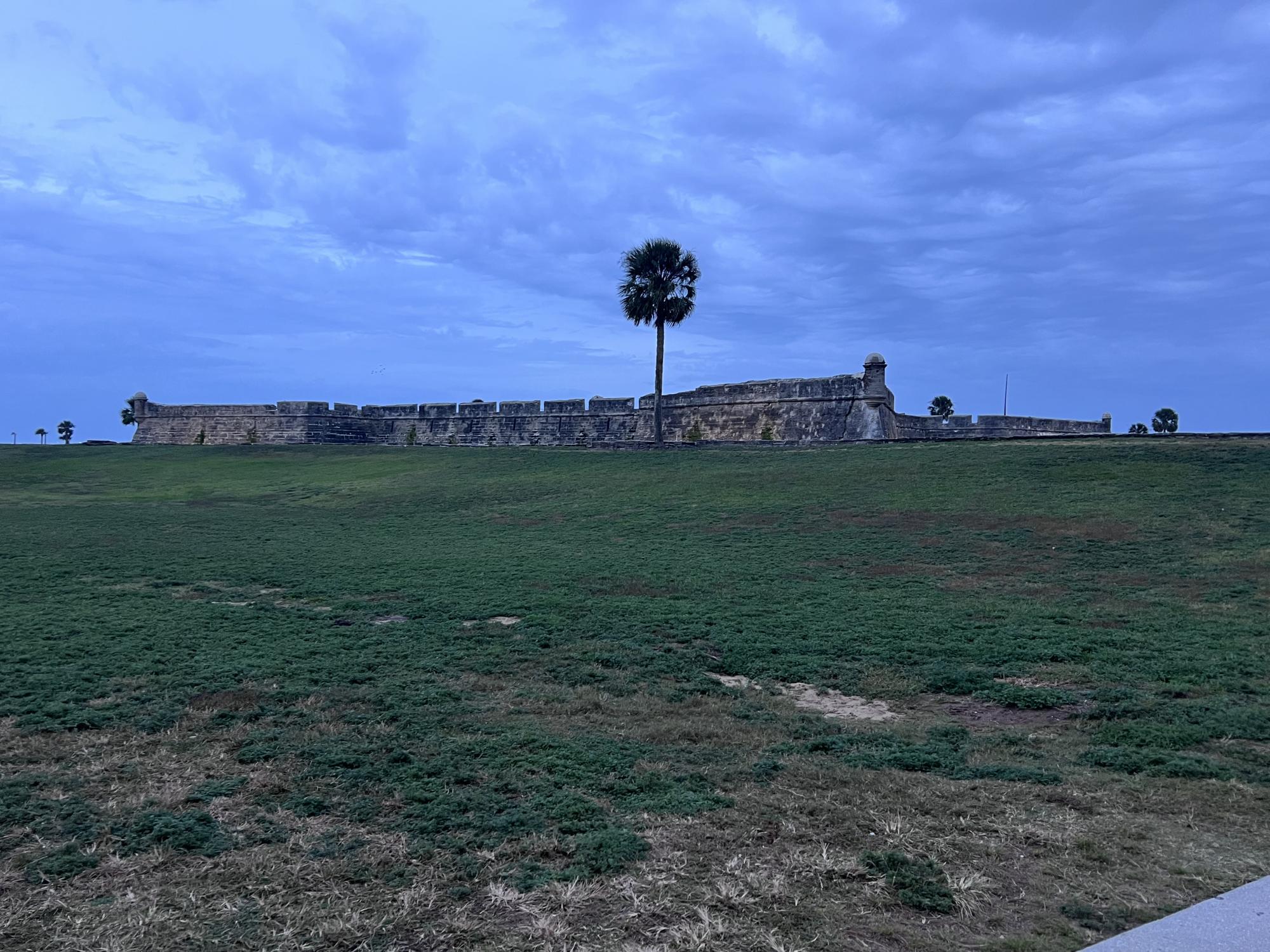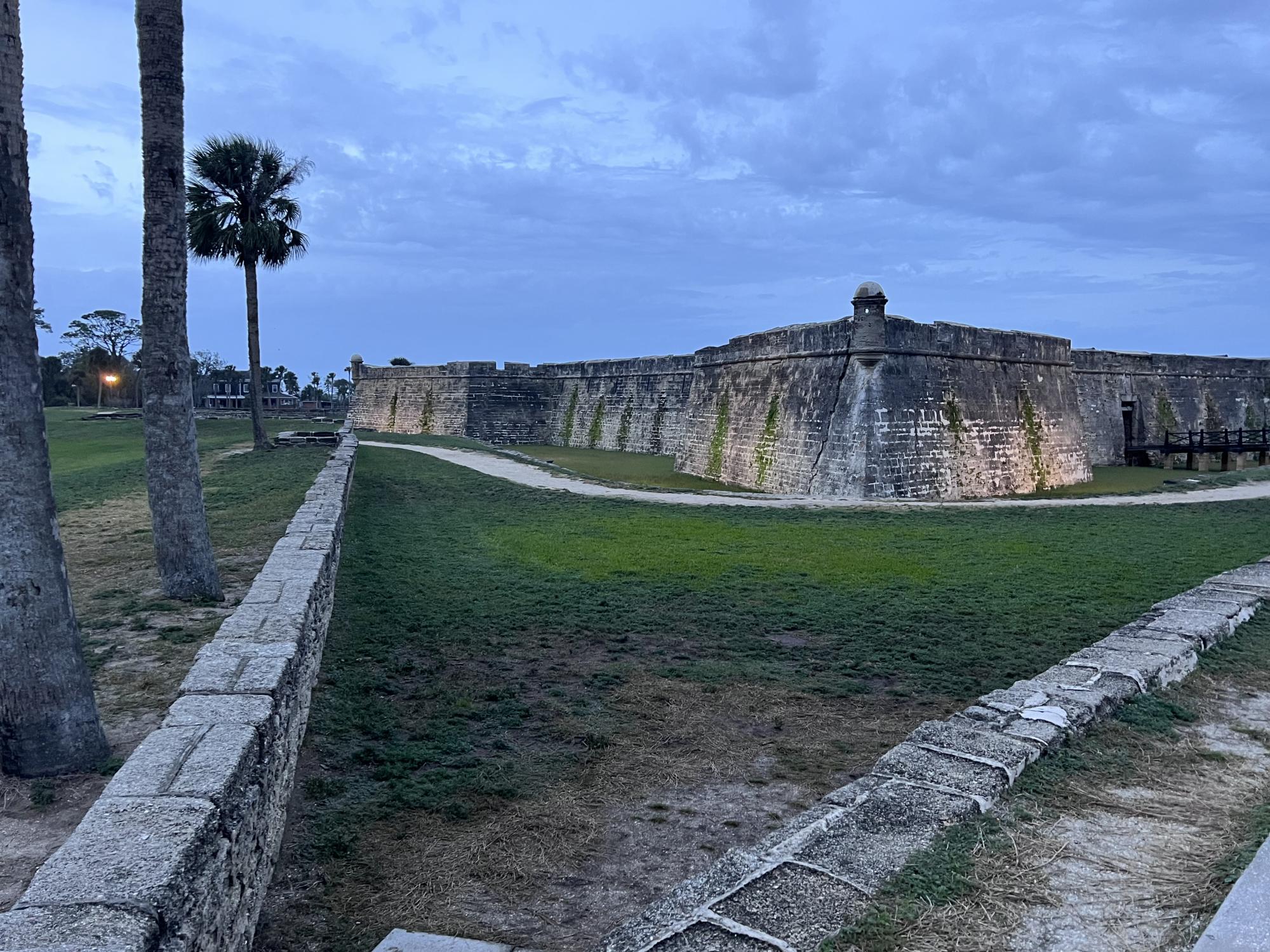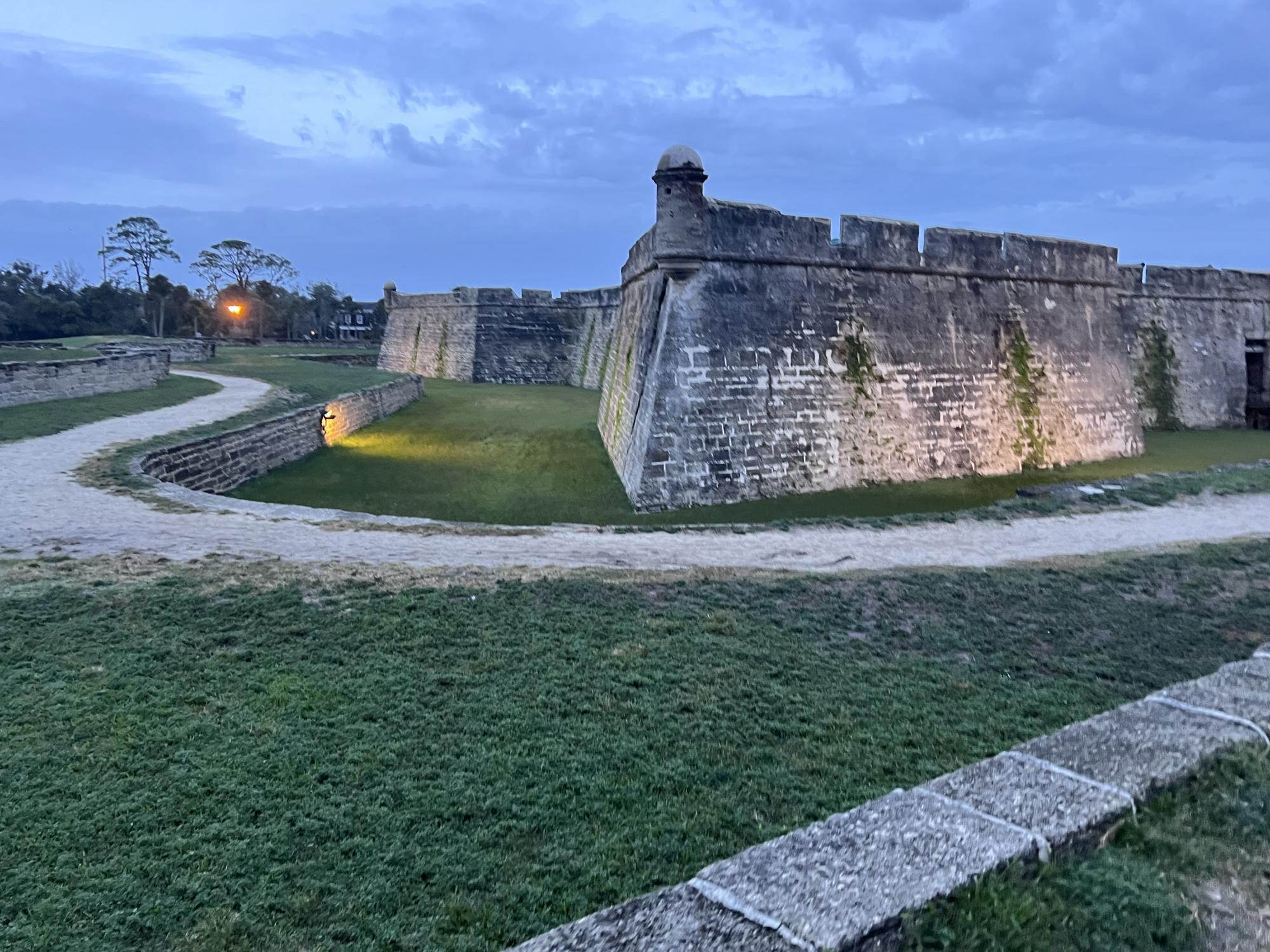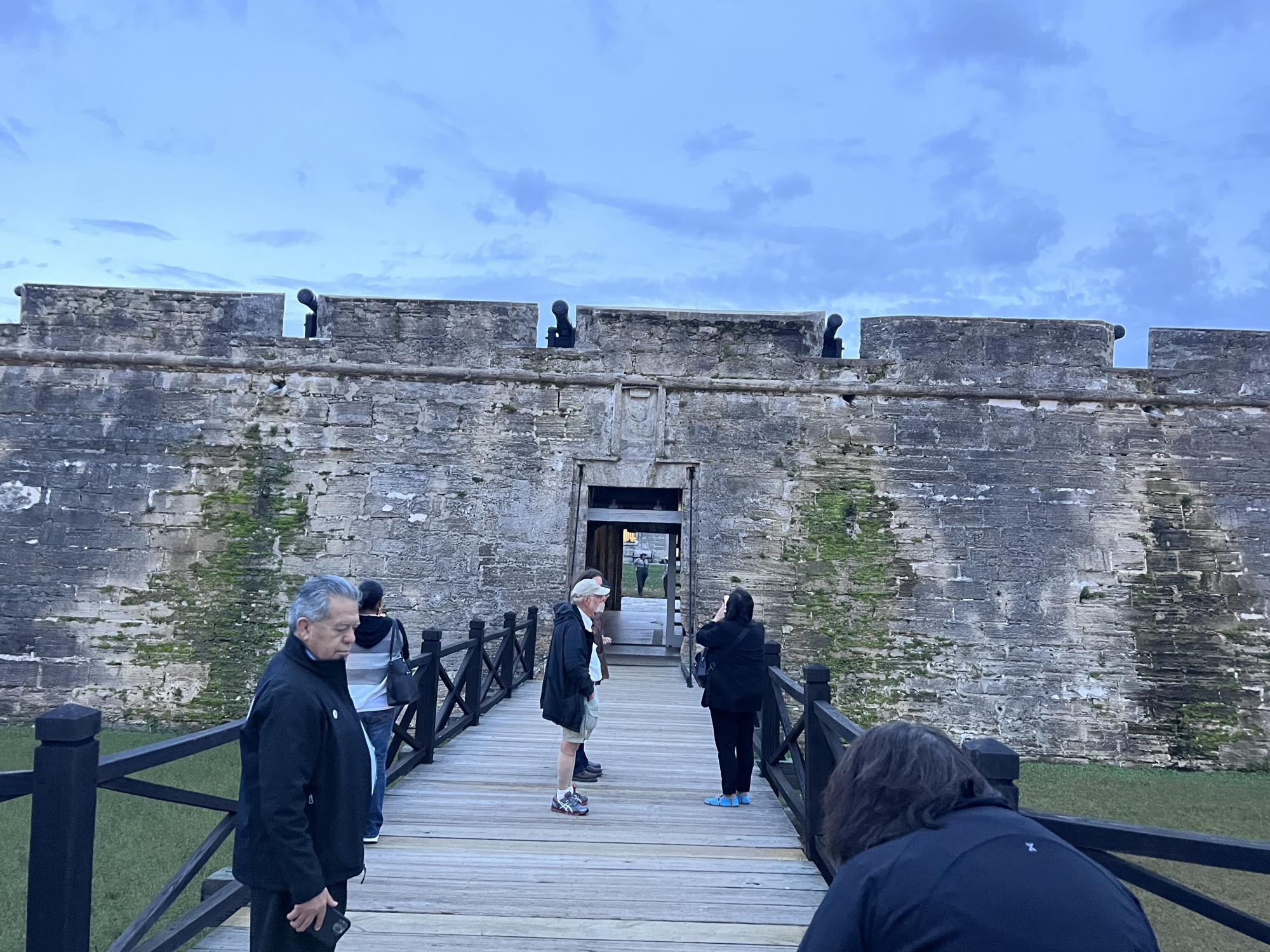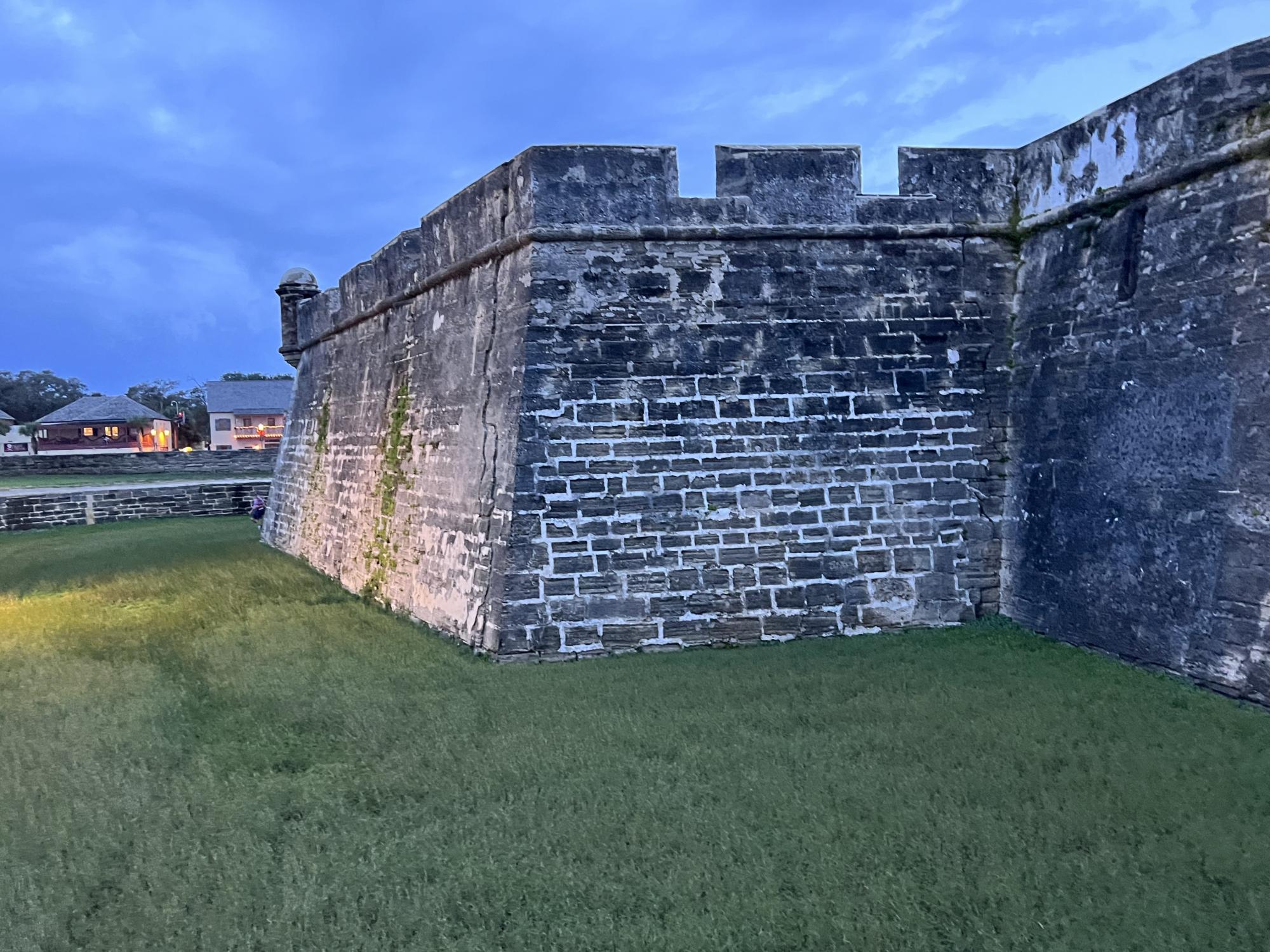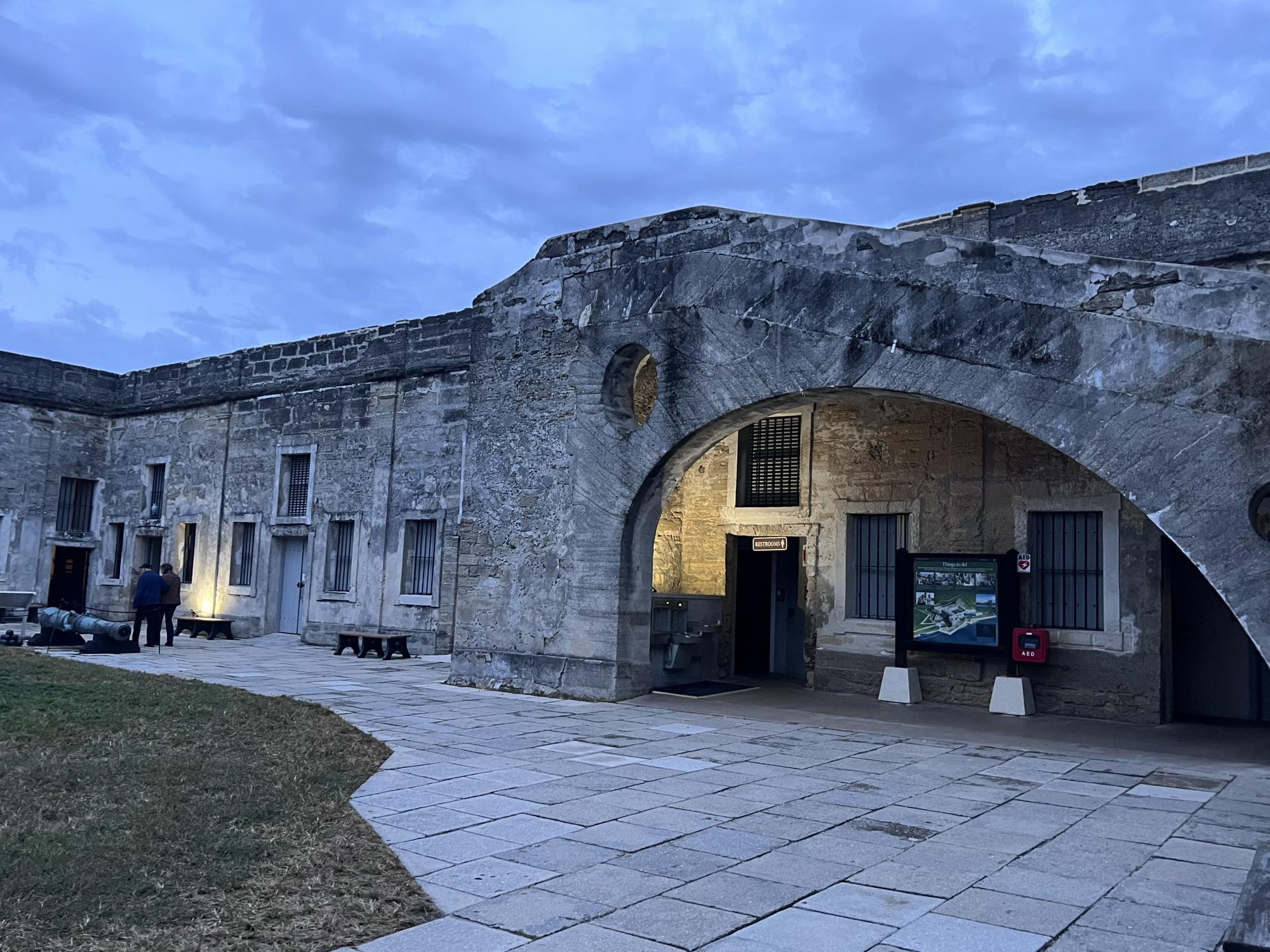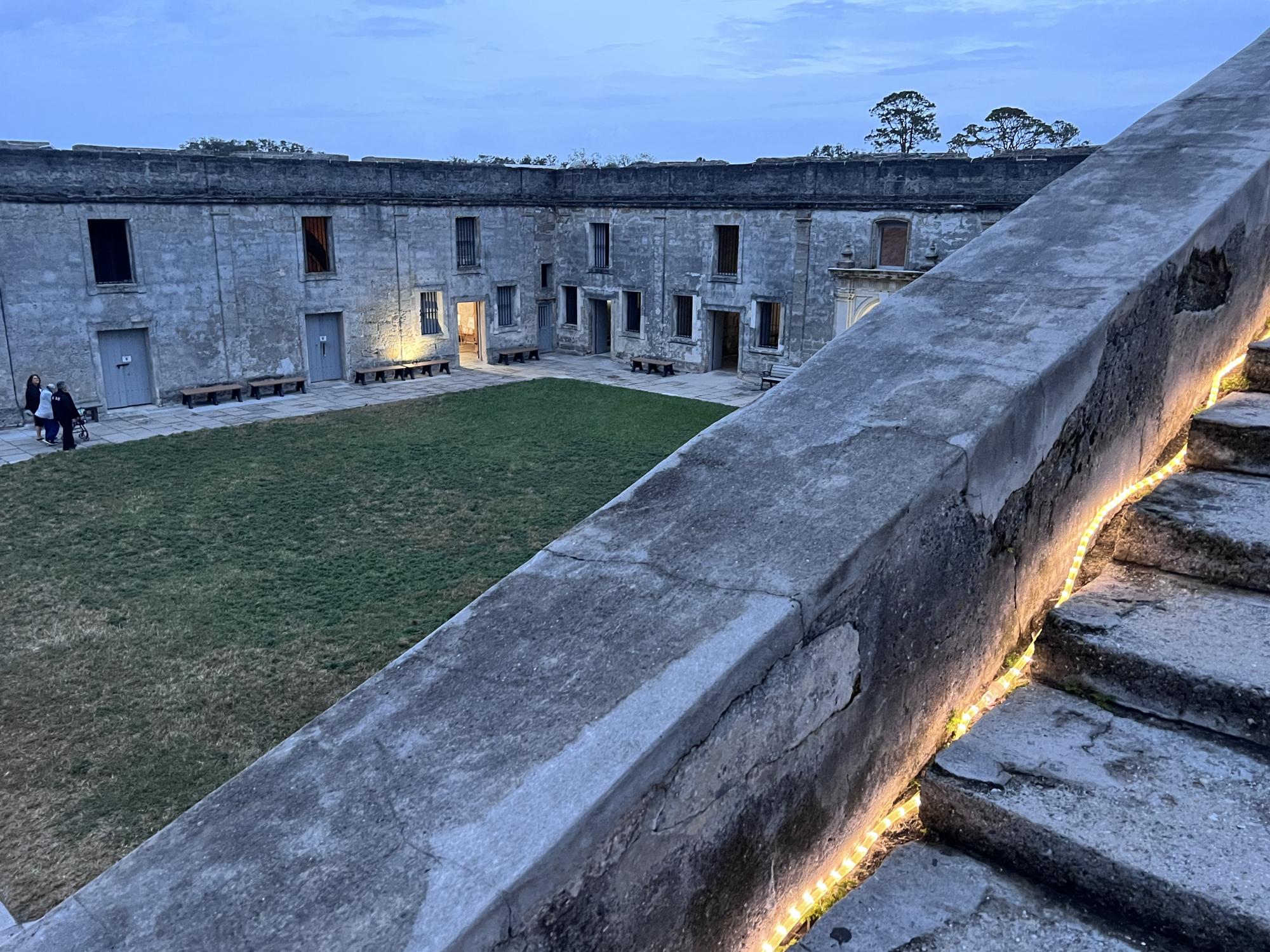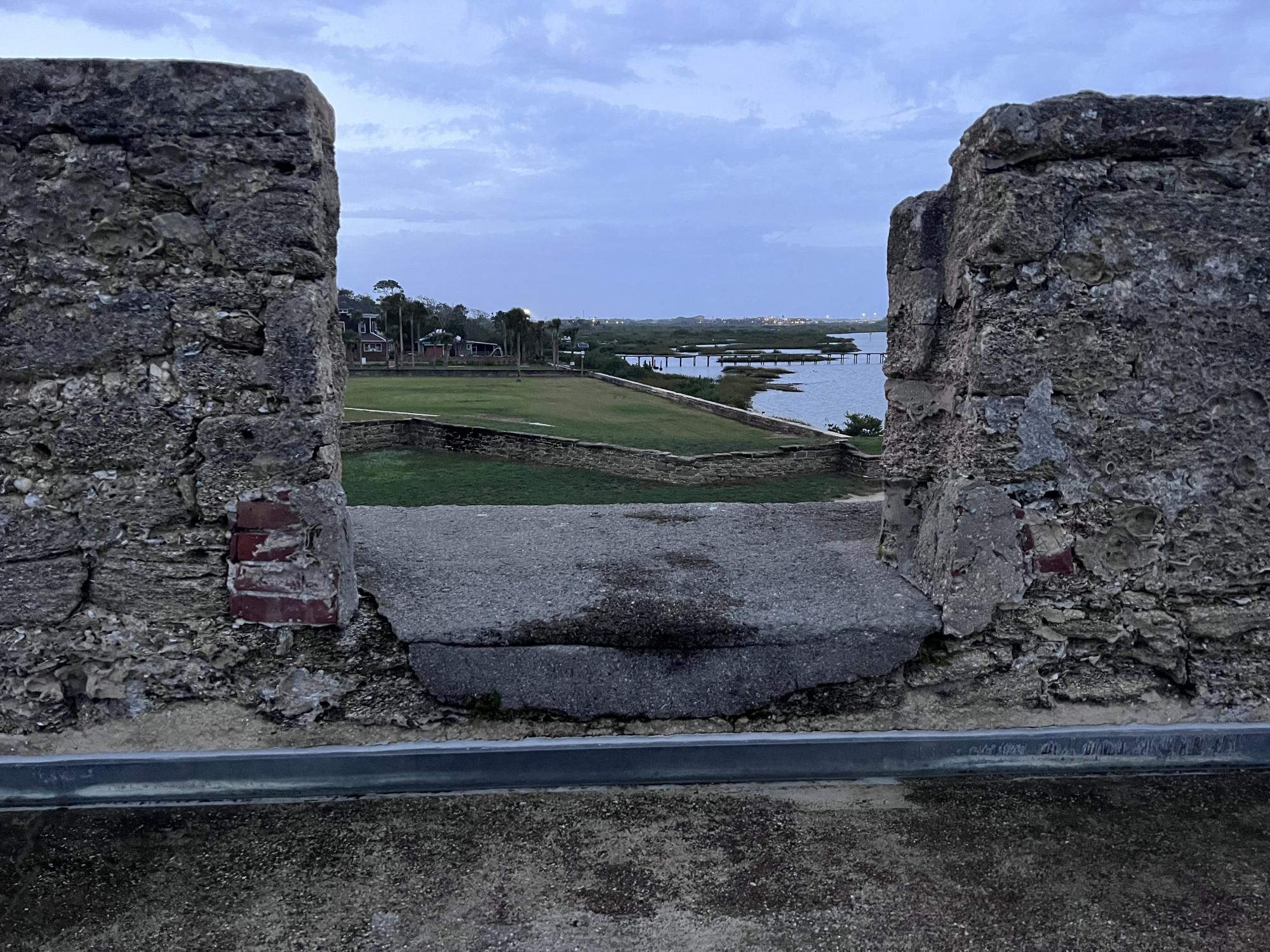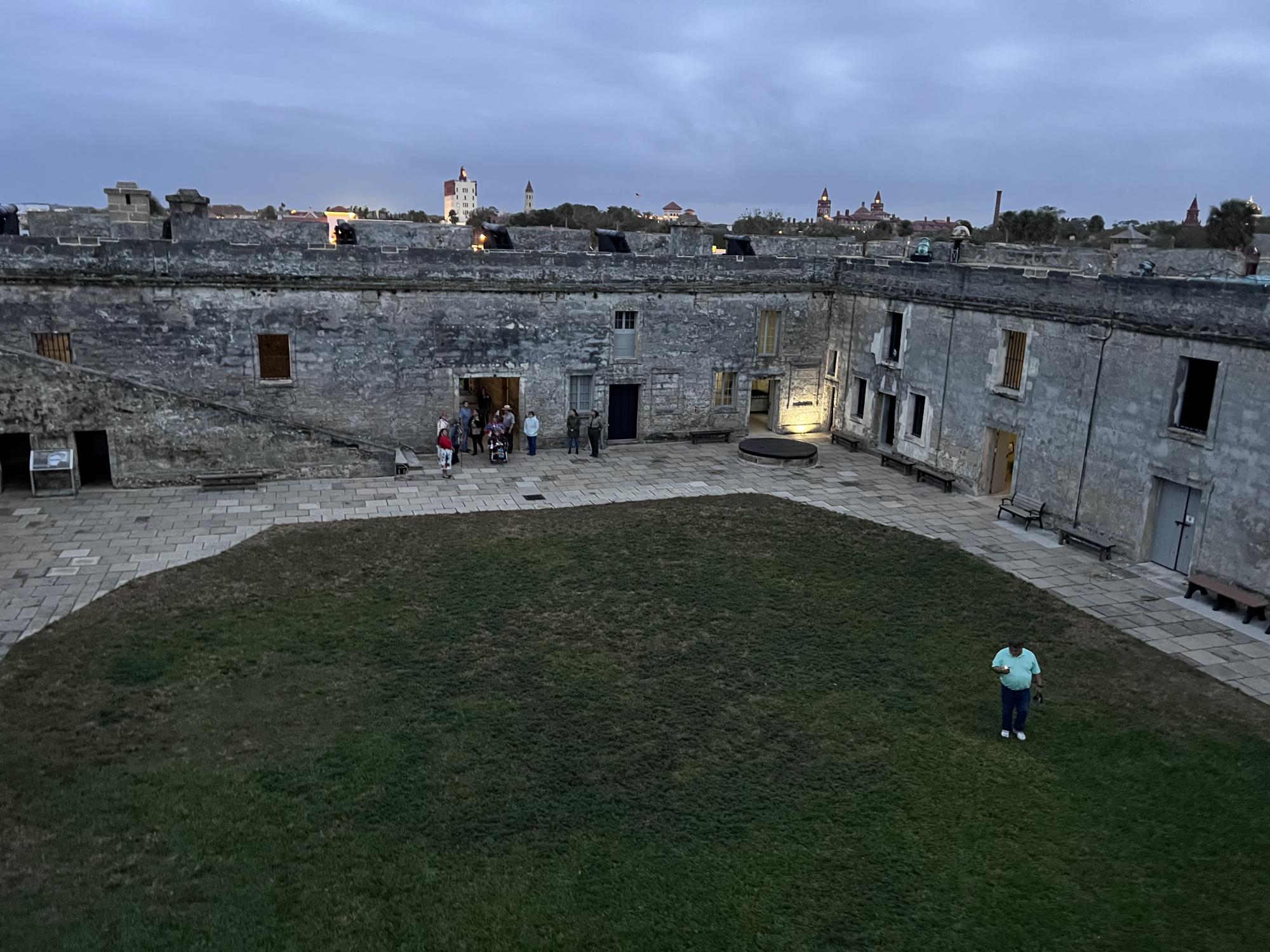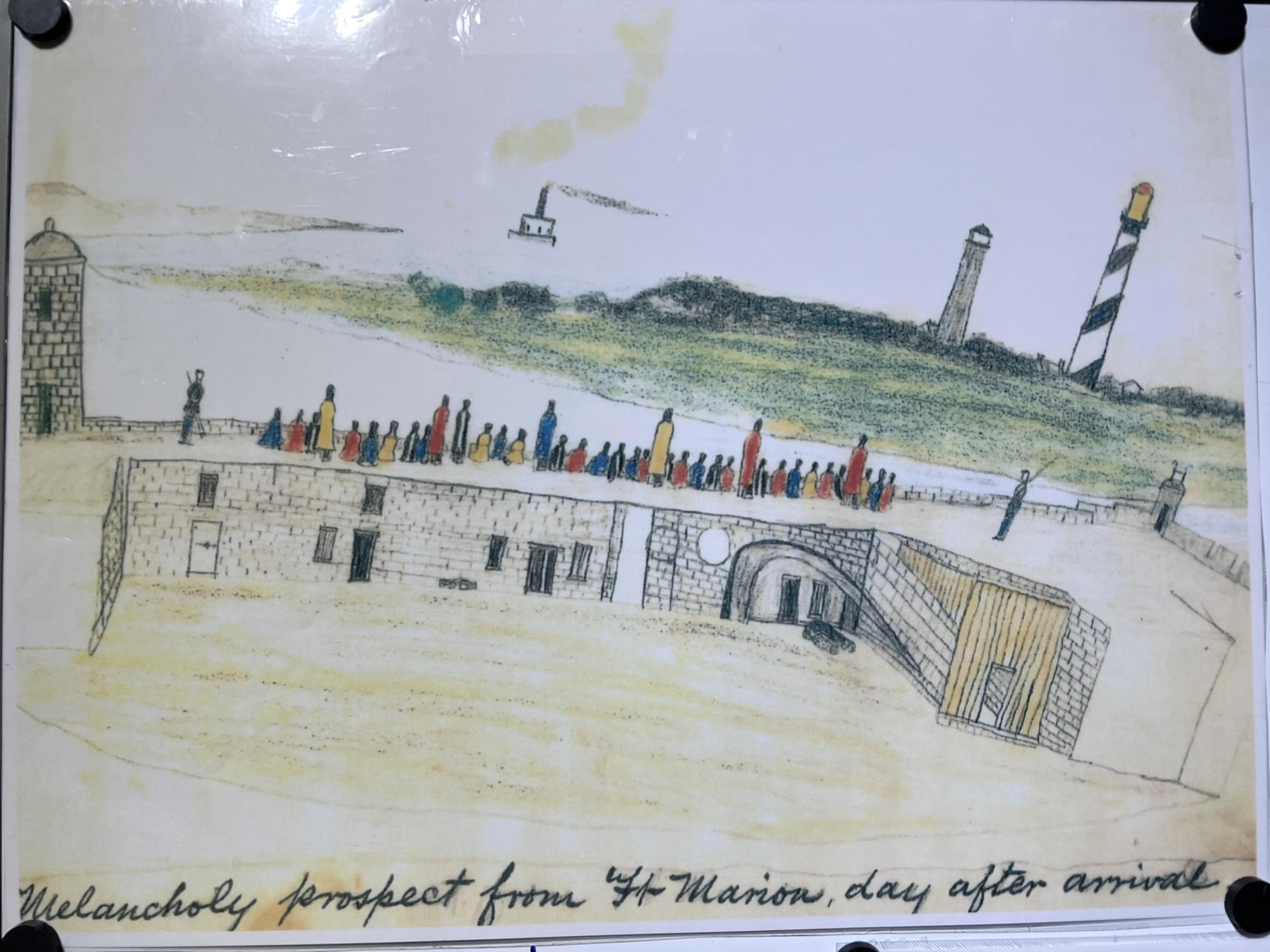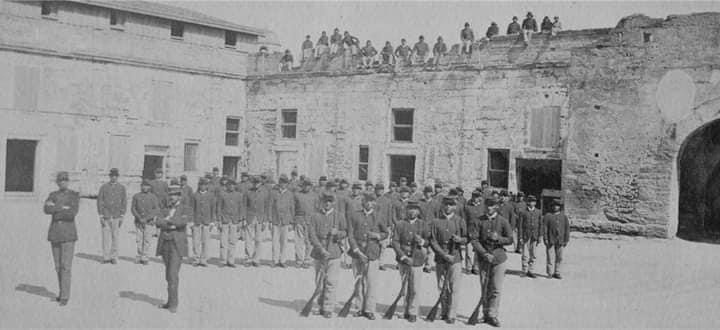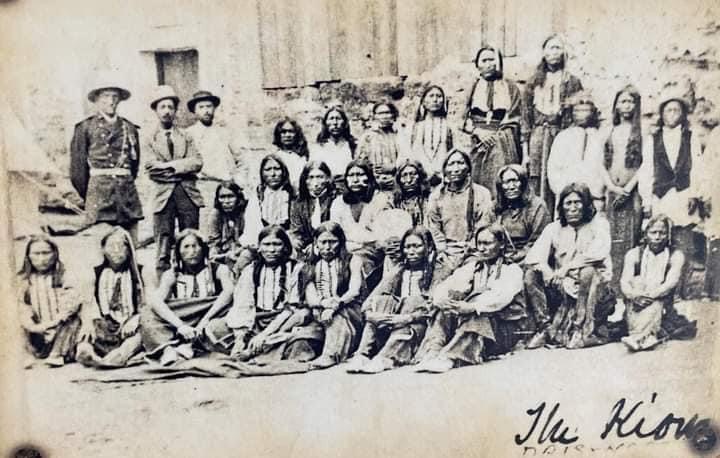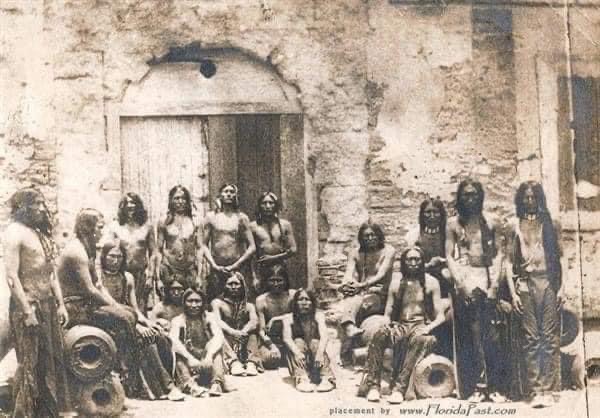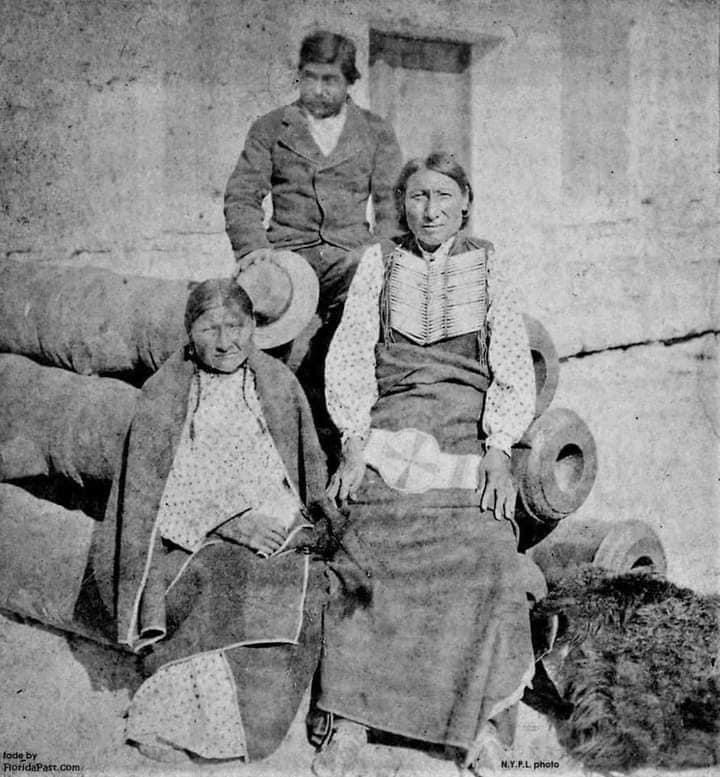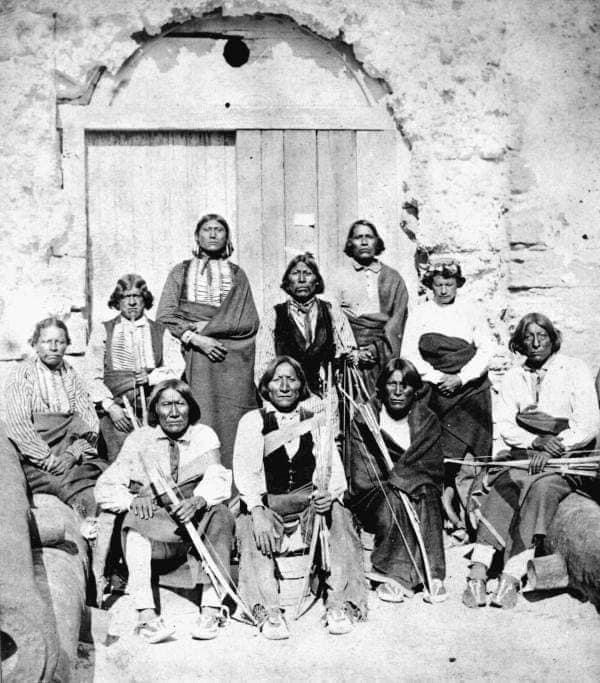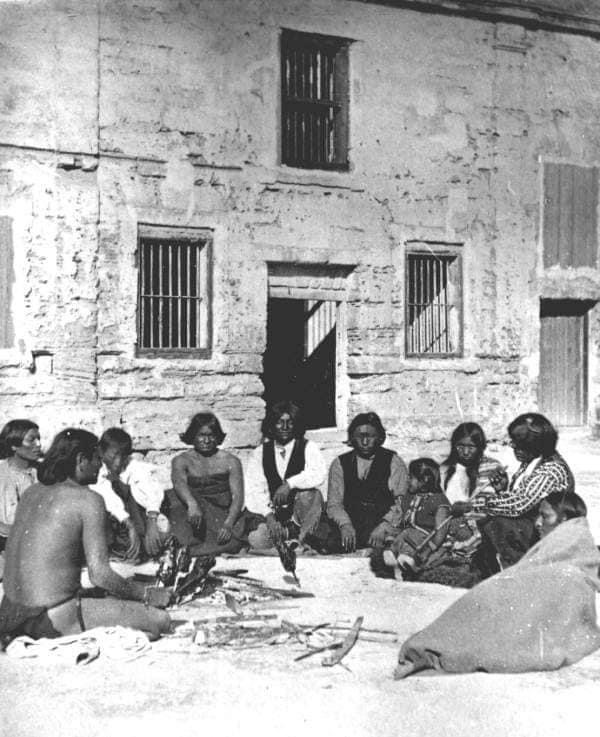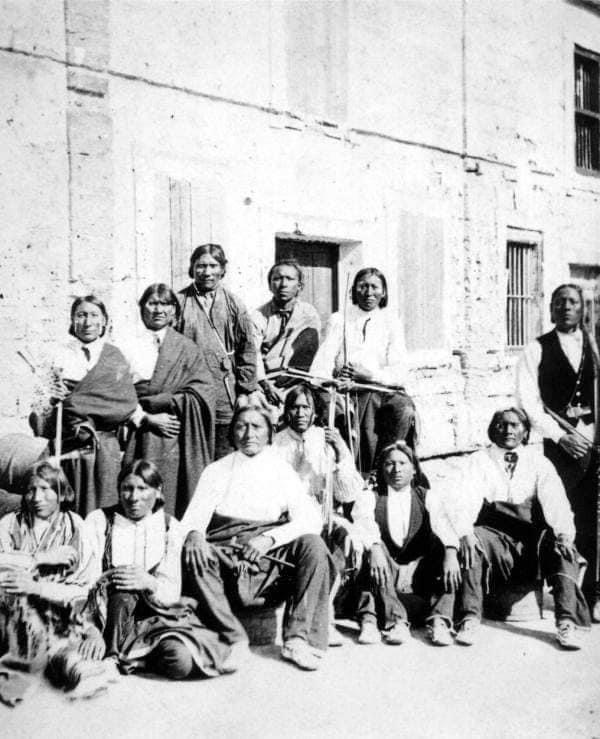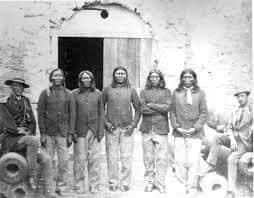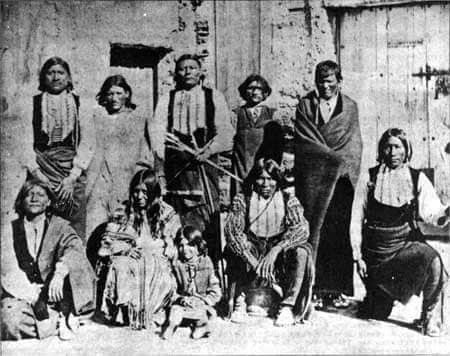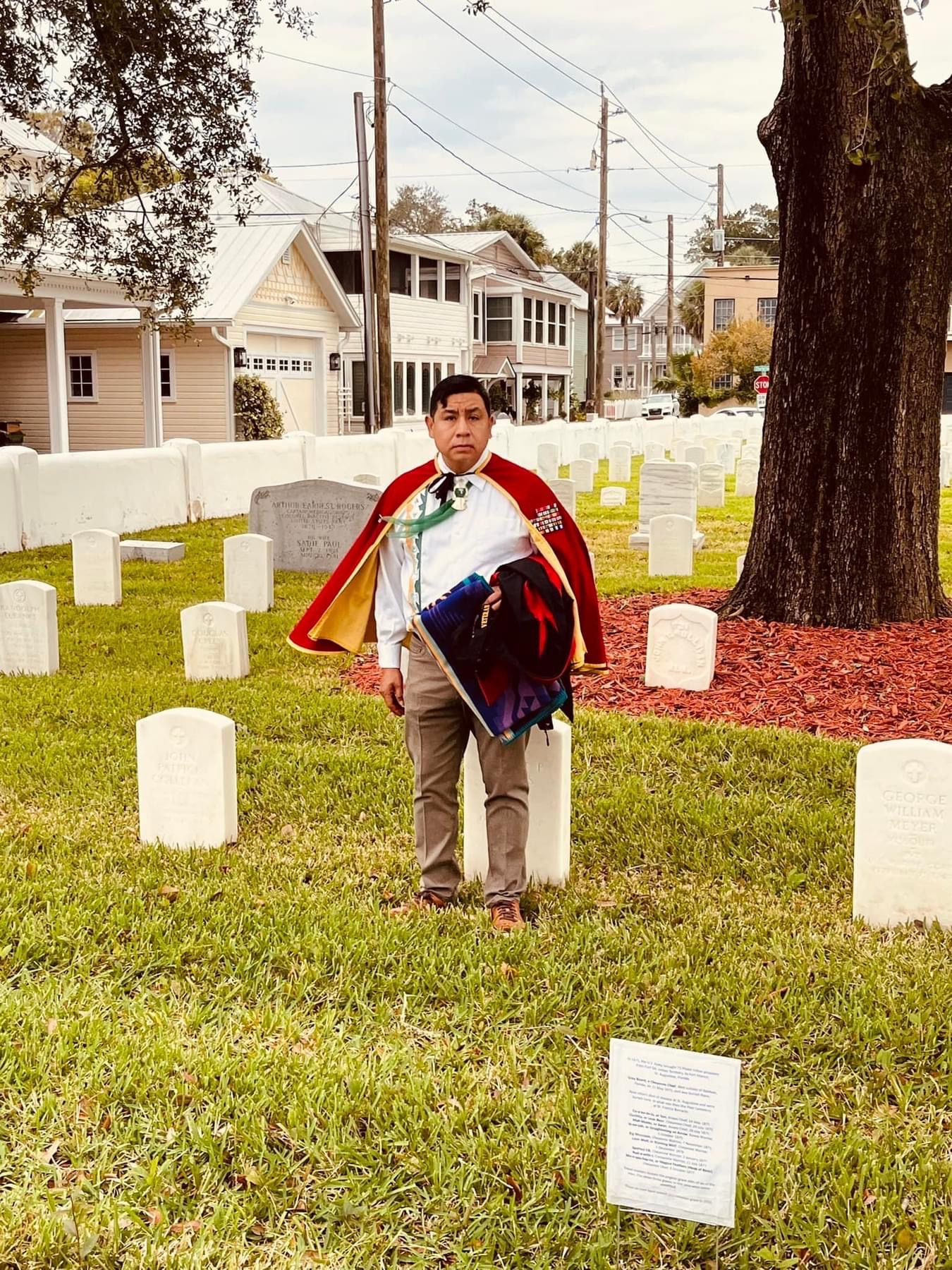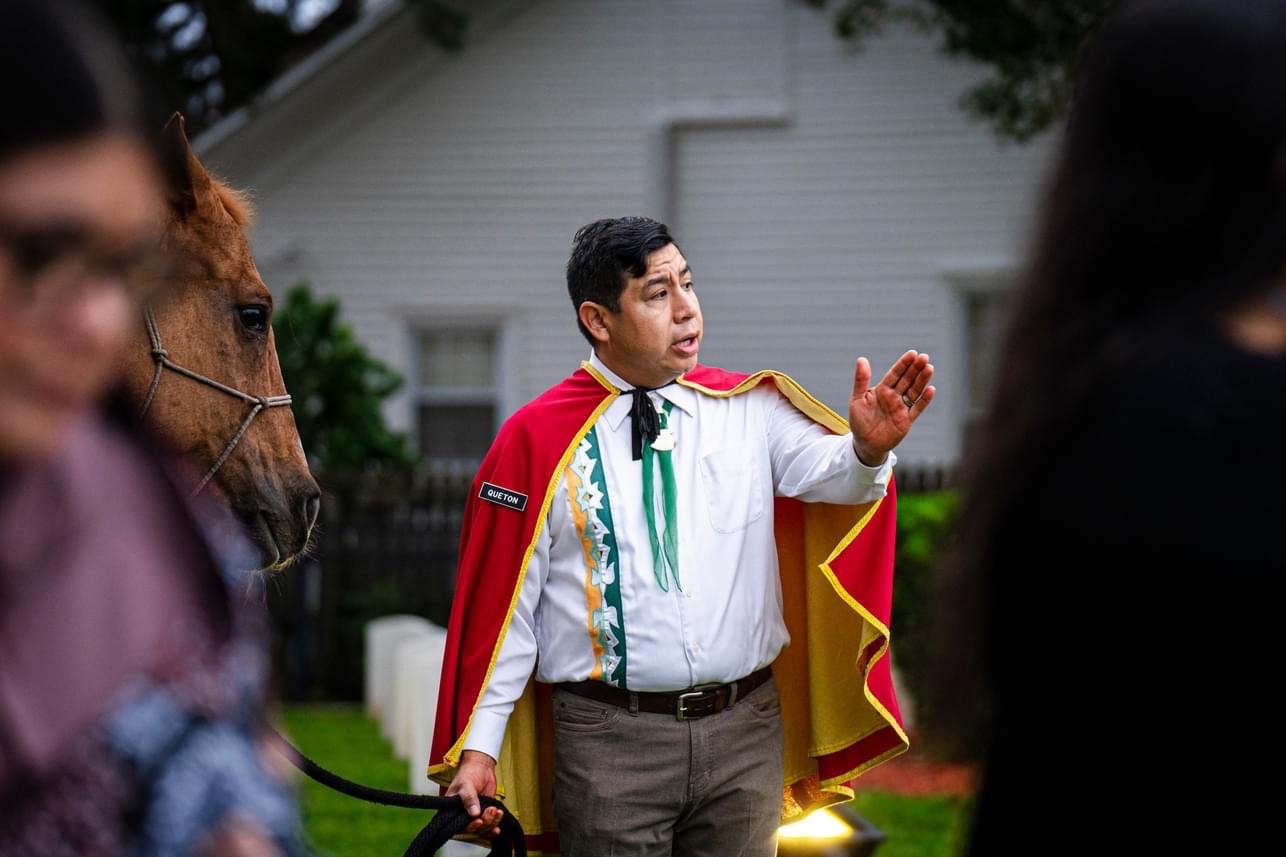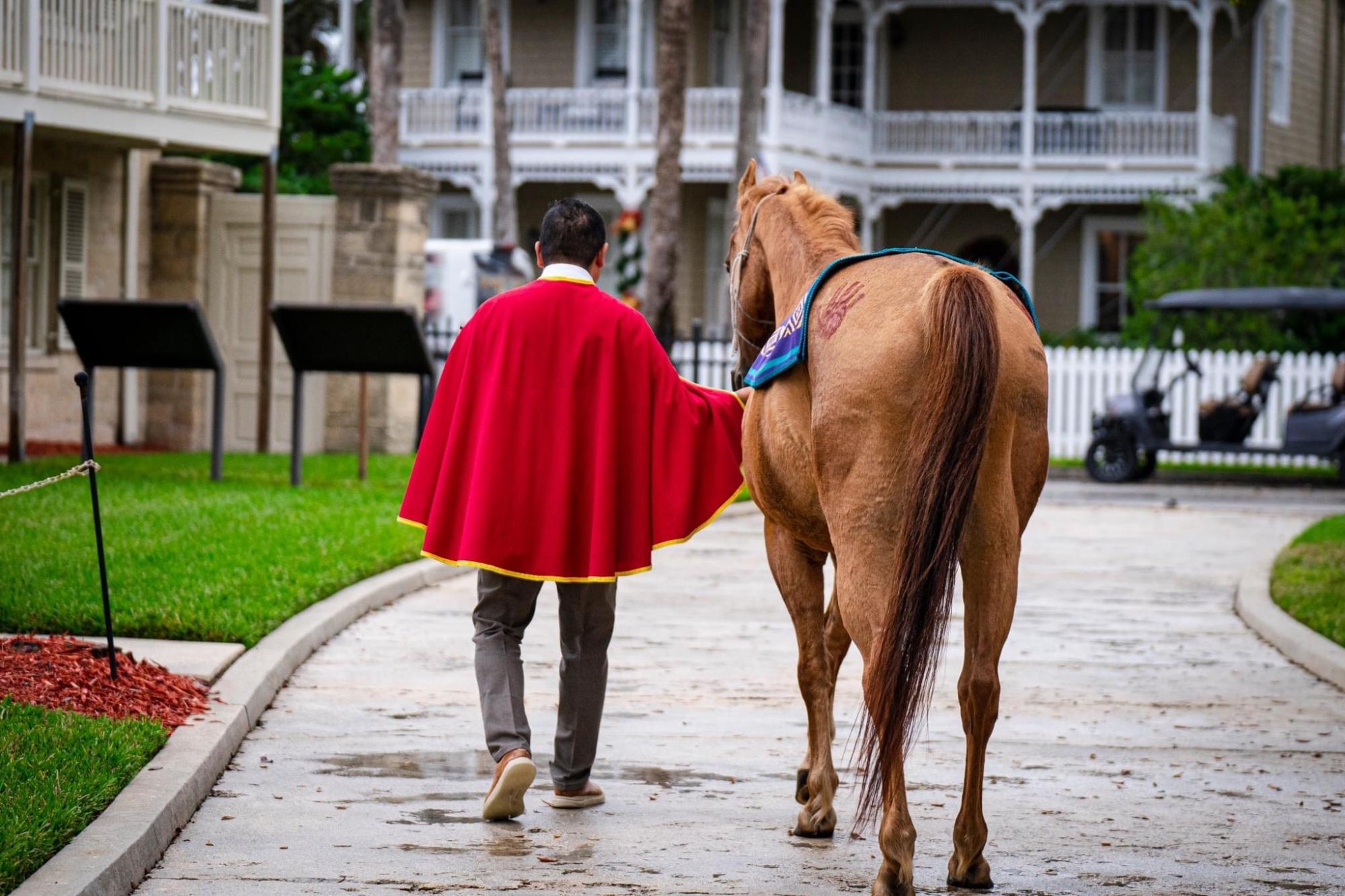On November 14-17, the Kiowa Tribe honored our ancestors at Fort Marion, Florida, in collaboration with the U.S. National Park Service.
Fort Marion, also known as Castillo de San Marcos, is a historic fort built by the Spanish in the late 1600s. It has served as a military stronghold prison and is now a popular tourist attraction. However, for the Kiowa Tribe, it holds more significance than just being a historic site.
During the late 1800s, Fort Marion was used as a prison for Native American warriors and chiefs who were captured during conflicts with European settlers. Among these prisoners were Kiowa Warriors and Chiefs, who endured harsh conditions and forced assimilation during their imprisonment.
The visit by the Kiowa Tribe to Fort Marion was a way for them to pay tribute to their ancestors who suffered at this site. The event was filled with traditional Kiowa ceremonies such as the Empty Saddle Song, Victory Dance, Scalp Dance, and Charging Songs. These ceremonies were a way to honor the bravery and resilience of their warriors and chiefs who faced immense challenges during their time at Fort Marion.
The Kiowa Tribe also had the opportunity to work with and educate the U.S. National Park Service to help preserve and promote the true history of their ancestors at Fort Marion. This collaboration has allowed for the creation of educational materials, exhibits, and events that highlight the rich cultural heritage of the Kiowa people. It also highlighted the importance of collaborating with the Kiowa Historic Preservation Officer on any cultural and Kiowa intellectual property.
Through this visit, the Kiowa Tribe was able to honor their past and share their traditions and values with others. The event served as a reminder of the importance of reconciling our history and keeping those who came before us.
In conclusion, the Kiowa Tribe's visit to Fort Marion was meaningful for the tribe and the U.S. National Park Service. It was an opportunity to honor their ancestors, promote cultural preservation, and share their traditions with others. This visit serves as a reminder of the strong connection between history, culture, and identity for indigenous communities like the Kiowa Tribe. So, we must continue to recognize and respect the cultural significance of places like Fort Marion to honor and preserve the legacies of those who came before us. Let us learn from the past, reconcile in the present time, and protect our shared history for future generations. This is a responsibility that we all share and must strive towards together.

